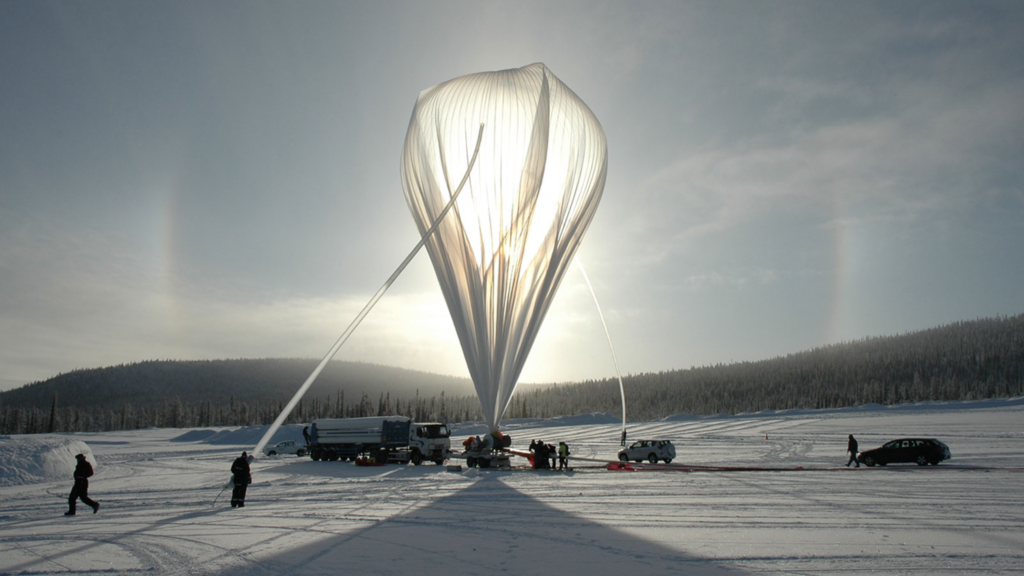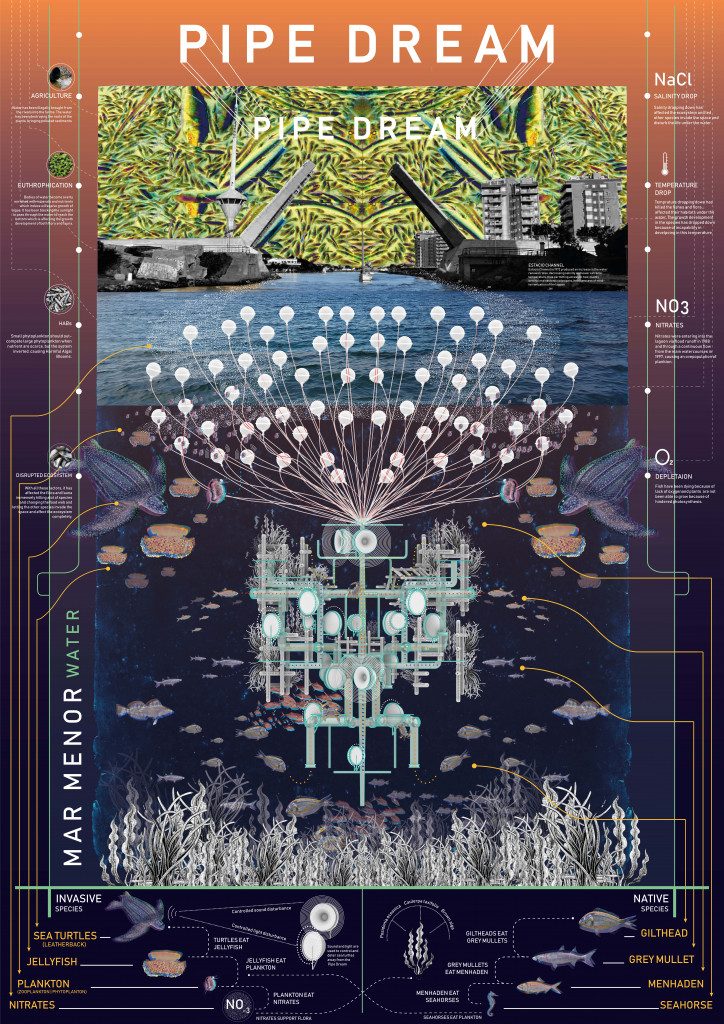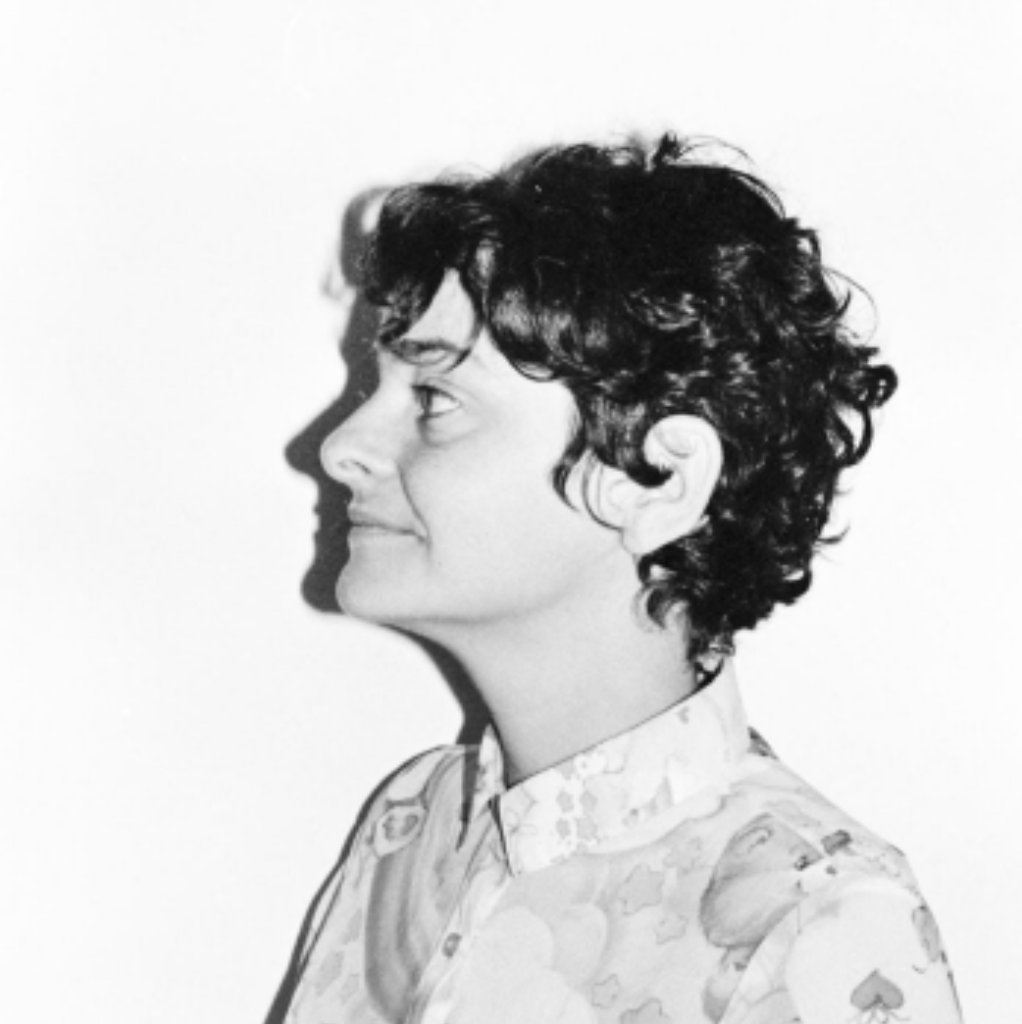SPECULATIVE LANDSCAPES
PLANIFIED INTERVENTIONS TOWARDS VIABLE FUTURES
Seminar Faculty: Mireia Luzárraga
Our view towards nature is nowadays far from the one that we had in the Holocene. Our landscapes are not anymore those romanticized places built by mother earth, but each single natural space on the planet is strongly influenced by the human action, that is bringing massive extensions and rising temperatures among others.

Credits: Harvard University balloon SCoPEx (Stratospheric Controlled Perturbation Experiment) at the Esrange Space Center in Kiruna, Norway, ready to make the flight that never took place.
According to Greenpeace, just in 2018, video traffic caused 300 million tons of CO2. In a world where the most insignificant of our activities such as watching a movie or following an online lecture have dramatic consequences regarding Climate Change, it seems clear that small interventions based on the “think local-act global” slogan do not have enough impact to produce a balance: If we want to keep a viable space for living we must start thinking of planified interventions of the magnitude of the problems that we face.
The seminar will develop speculative approaches to face the origins of Global Warming from an architectural point of view. Based on the latest technological and scientific studies in Climate Intervention, we will develop multidisciplinary proposals that will deal with issues such as the reduction of emissions of CO2, the management of solar radiation, the creation of clean energies or the control of nuclear waste, and at the same time we will be discussing on geopolitical analysis, the relationship between private companies and public welfare or the ethical codes and controversies that these kind of interventions are certainly producing nowadays.

Credits: Pipe Dream
Eve nnaji, Nitha Shivapuram, Preetham Alapati
Mapping Complexities Seminar 2019/20
Learning Objectives
At course completion the student will:
- Have an approach to the contemporaneous ecology thinking;
- Read and understand a complex system that calls a multiplicity of agents involved in it: regulations, human, non human, molecular, chemical, physical, etc.;
- use architecture as a design tool for creating viable futures;
- communicate through drawings a complex situation.
Faculty

Mireia Luzárraga is co-Founder of TAKK, a space for architectural production based in Barcelona and Madrid focused on the development of experimental and speculative material practices in the intersection between nature and culture in the contemporary framework.
TAKKs work has been shown in international events such as the Venice Architecture Biennale 2014, and 2018 (IT), the Orléans Architecture Biennale 2017 and 2019 (FR), the Rabat Biennale 2019 (MA), the Porto Biennale 2019 0(PT), the San Sebastian Architectural Biennale 2017 (ES), and the Oslo Architecture Triennale 2016 (NO) among others. Part of their work belongs to the permanent collection of FRAC Centre Val de Loire (FR). They have lectured and led workshops internationally in places such as Columbia (New York), Inda (Bangkok), Floating University (Berlin), ETSAM (Madrid), among many others. Their work has been widely published in magazines, books and press, and they have been awarded with prices such as the FAD award on architecture (2011)ooo In Addition to her professional practice Mireia Luzárraga teaches at Universidad de Alicante, BAU (Barcelona) and IAAC (Barcelona). They have also taught at UIC (Barcelona) and IED (Madrid).
Website: takk-architecture.com
Instagram: @we_are_takk